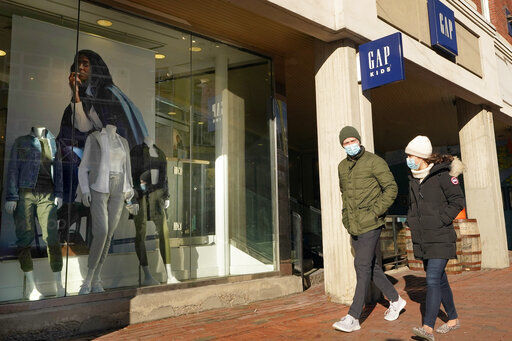WASHINGTON — Consumers spending slumped 1% as severe winter storms raked portions of the U.S. and personal incomes fell sharply as well in February.
The drop in spending came after a big 3.4% gain in January, the Commerce Department reported today. Consumer spending is closely watched because it accounts for two-thirds of economic activity.
Personal incomes, which can fuel spending going forward, plunged 7.1% last month after a 10.1% surge in January, when the U.S. was sending out $600 individual payments to help Americans during the pandemic. Incomes are expected to rebound in March with millions of $1,400 individual payments being distributed.
Economists had expected declines in February due to severe weather that hit large swaths of the country and left millions in Texas without power for days. Since so much of the weakness was weather-related, economists believe economic activity will remain solid overall in the January-March quarter.
The expectation is that the economy will receive a boost from the $1.9 trillion spending bill signed into law by President Joe Biden on March 11. It provides direct payments of $1,400 to individuals, extends emergency unemployment benefits and provides billion of dollars to state and local governments to prevent layoffs of essential workers.
The government announced this week that $325 billion had already been distributed since Biden signed the legislation on March 11.
The overall economy, as measured by the gross domestic product, grew at an annual rate of 4.3% in the fourth quarter, capping a year when GDP plunged by 3.5%, the biggest annual setback in more than seven decades.
But economists are forecasting that 2021 will see a sizable rebound as vaccinations accelerate, encouraging people to go out and shop and spend, and as more government relief is distributed.


